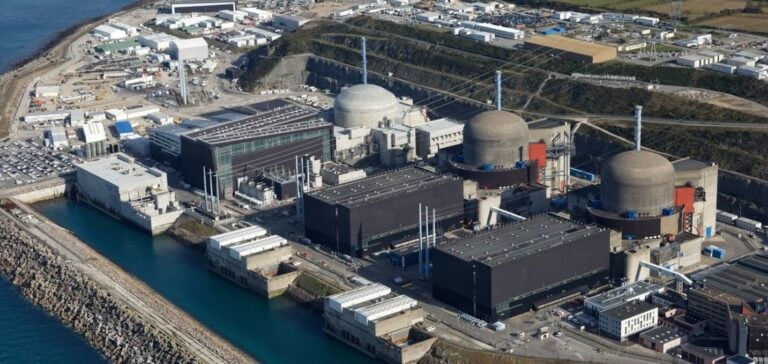Bruno Le Maire has expressed measured caution about France’s ambitions for the construction of EPR2 nuclear reactors to a Senate committee of inquiry. This position marks a reflection on the current and future capabilities of the French nuclear industry, which is being put to the test by far-reaching technical and industrial challenges. Nevertheless, the private sector is investing more in the field, as TotalEnergies has done.
The challenges of rebuilding the nuclear industry
The Minister insisted on the “gigantic scale” of the project represented by the six new EPR2s announced by President Emmanuel Macron in February 2022. He recalled that the industry has gone through tumultuous periods, marked by significant loss of skills and recurrent criticism. This context calls for reconstruction, both in terms of civil engineering and technological aspects.
EDF, a key player in this nuclear revival, recently reached a crucial milestone with the Flamanville EPR reactor, for which fuel loading has just been completed. However, the project is twelve years behind schedule, illustrating the difficulties inherent in such projects.
Limited absorption capacity
Bruno Le Maire pointed out that six EPR2s represent “a reasonable amount of absorption by our nuclear industry”. It made the possibility of building eight additional reactors conditional on EDF demonstrating its ability to complete the first projects on time and on budget. This position tempers our initial ambitions, while leaving the door open to future expansion conditional on convincing results.
Initial preparatory work at Penly
The French government recently gave EDF the go-ahead to start preparatory work on the two future EPR2 reactors at Penly (Seine-Maritime). This decision, formalized by a decree on June 3, marks a concrete step towards achieving the objectives set by Emmanuel Macron. However, the Minister stressed the importance of closely monitoring the progress of these projects to assess the industry’s ability to meet expectations.
Perspectives and reflections
The future of nuclear power in France therefore depends on EDF demonstrating its reliability and efficiency. Bruno Le Maire’s cautious stance reflects a desire to ensure that the projects undertaken are feasible and beneficial for the industry and the country. This pragmatic approach is designed to secure investments and ensure a gradual build-up of skills.
To sum up, the construction of new nuclear reactors in France is a major industrial challenge, requiring a solid rebuilding of the industry and a demonstration of capacity by EDF. Government support is conditional on this proof of success, offering a measured but ambitious outlook for the future of nuclear power in France.






















